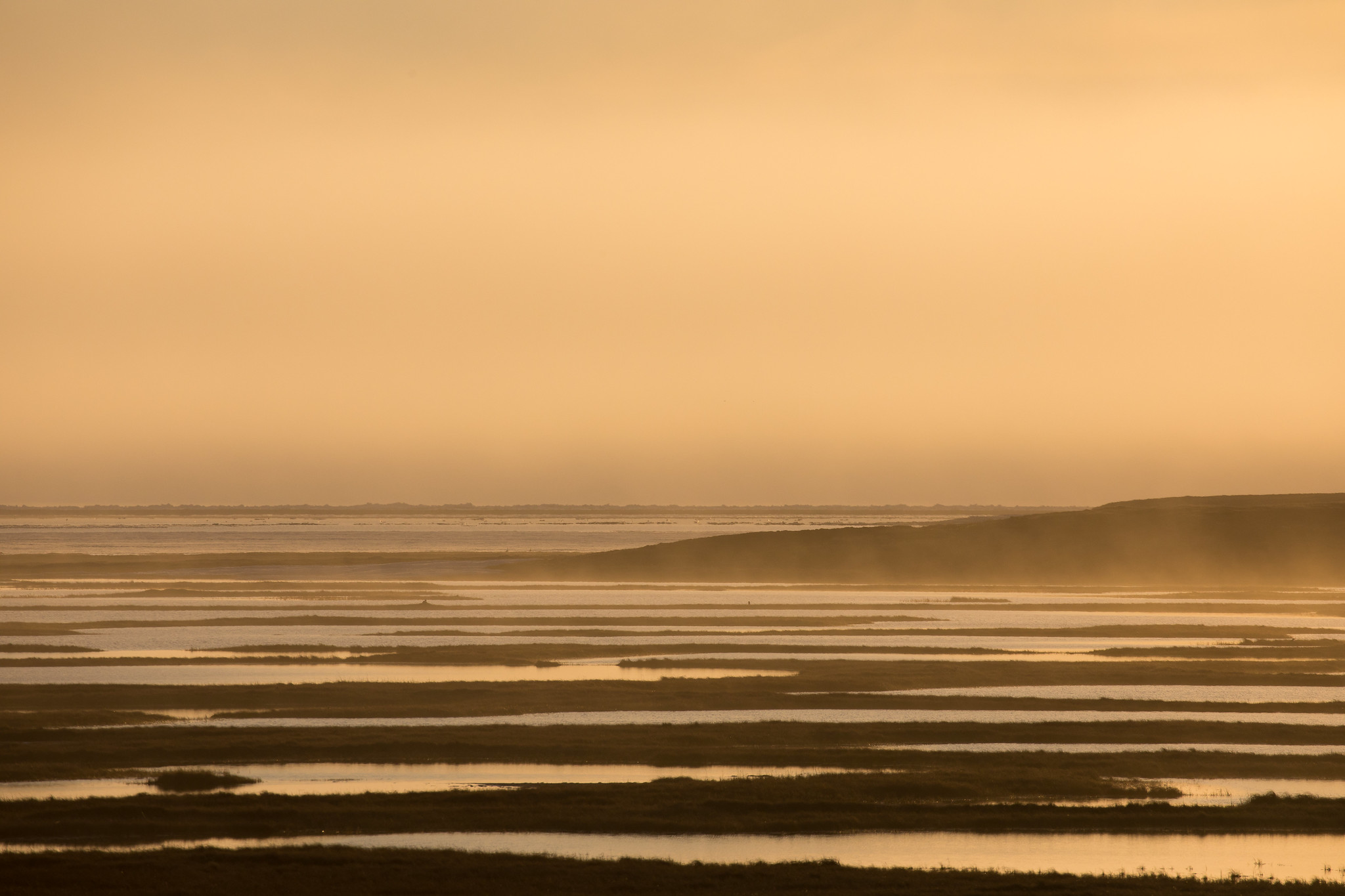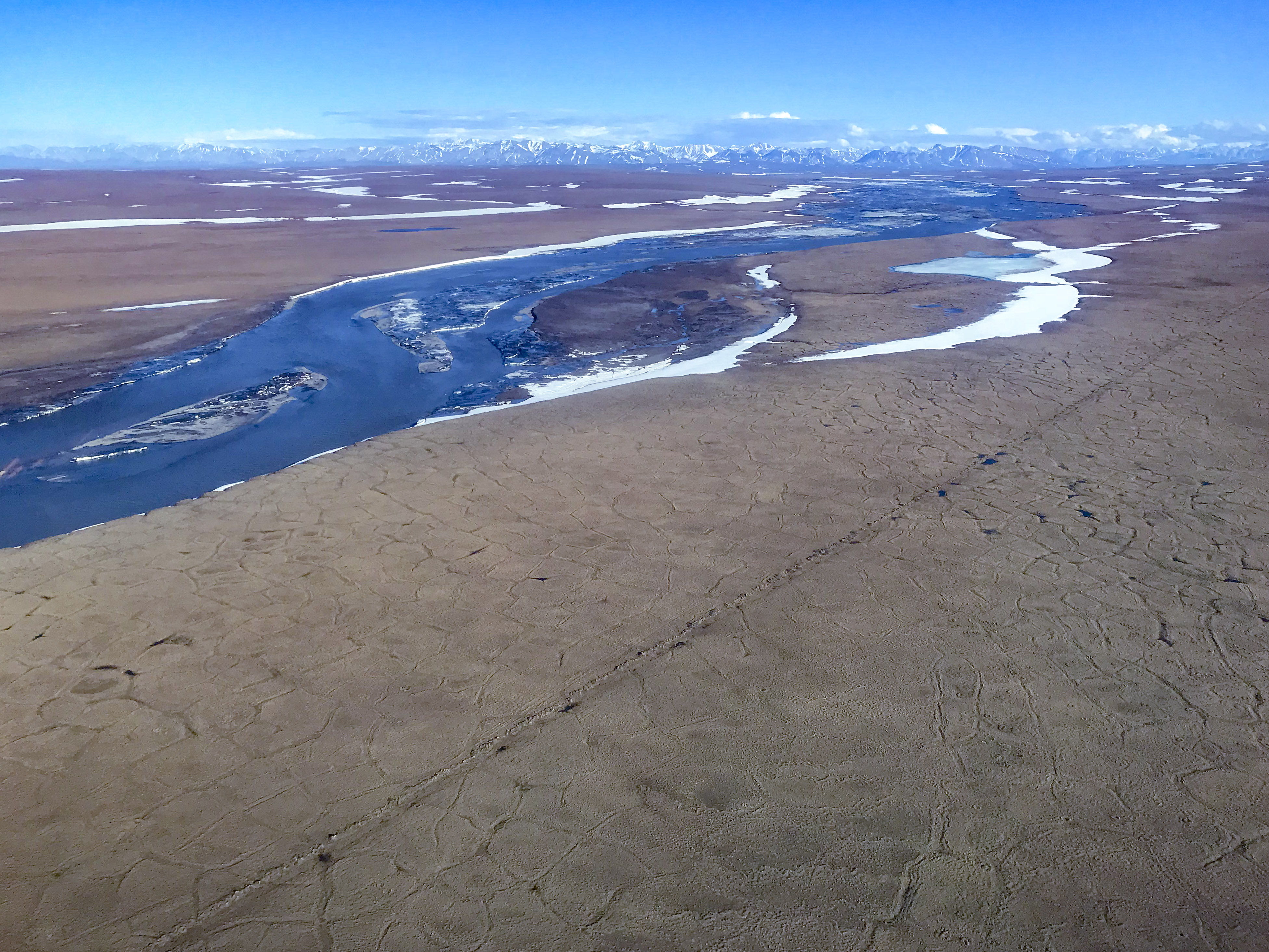Environmental, Native groups seek temporary halt to Arctic refuge lease sale as seismic plan gains momentum
The move comes as the Interior Department hastens to hold a sale in the final days of the outgoing Trump administration.

Three weeks before the outgoing Trump administration plans to auction off tracts in the Arctic National Wildlife Refuge coastal plain to oil companies, environmental and Alaska Native groups have filed motions seeking injunctions to temporarily block that lease sale.
The motions were filed in three of four lawsuits pending in U.S. District Court in Anchorage that seek to overturn the administration’s plan for oil leasing in the refuge.
Those lawsuits were filed by three Alaska Gwich’in tribal governments represented by the Native American Rights Fund; by the Gwich’in Steering Committee and a collection of Alaska, national and Canadian environmental groups; and one filed by a coalition of four national environmental groups.
The environmental and Native plaintiffs face imminent harm if the refuge oil lease sale scheduled for Jan. 6 goes ahead as the Trump administration is planning, the motions said. The Interior Department, in contrast, would suffer no such harm if a lease sale were delayed, they argued.
“Irreparable environmental harm is likely,” if the sale happens as scheduled on Jan. 6, said the motion filed in the four national environmental groups’ lawsuit. “And there are no apparent countervailing harms to Defendants from an injunction: the deadline to hold a first lease sale in the Refuge is a year away,” under the 2017 tax legislation that mandates oil leasing in the refuge coastal plain.
[Trump administration seeks to allow polar bear disturbance for oil in Alaska refuge]
“The Coastal Plain is the biological heart of the Arctic Refuge. It has been protected since 1960 in recognition of its exceptional, unique values. Polar bears, caribou, birds, and other wildlife are used and enjoyed by Alaskans, and valued across the United States and Canada. There is a significant public interest in preserving the status quo while this case is resolved,” said the motion filed by Gwich’in Steering Committee and its co-plaintiffs.
A delay of the lease sale and approval of the related seismic survey would likely push the schedule into the start of the Biden administration. President-elect Joe Biden has vowed to block oil leasing in ANWR and permanently protect the entire refuge from oil development.

The three lawsuits’ motions included requests for injunctions temporarily blocking any permit for seismic surveys on the refuge as well.
In a statement, one of the plaintiff attorneys accused the outgoing Trump administration of rushing the process and attempting to slip it past overwhelming public opposition.
“Every action leading up to this scheduled January lease sale has demonstrated a dangerous disrespect for public interest and transparency, from the way the law got tucked into a tax bill, to the disregard of science and engagement with those most impacted, to this lame duck effort to hand over sacred land to oil and gas interests on the way out of office,” Brook Brisson with Trustees for Alaska, the environmental law firm representing the Gwich’in Steering Committee and its co-plaintiffs, said in the statement.
A fourth lawsuit seeking to block the lease sale was filed by Lower 48 states that say ANWR oil development would cause environmental damage thousands of miles to the south by exacerbating climate change and harming migratory bird populations, As of Tuesday, there was no similar motion for a preliminary injunction filed in that lawsuit.
[Trump administration plans to sell Arctic refuge oil leases in early January]
Supporting the Trump administration’s leasing plans are two Inupiat-owned corporations with oil interests — the Kaktovik Inupiat Corp. and the Arctic Slope Regional Corp. — along with the American Petroleum Institute and the Alaska Oil and Gas Association, plus the North Slope Borough and the Native Village of Kaktovik. All have been granted permission to intervene in the cases to argue in favor of holding the lease sale as planned.
In a brief response filed in two of the case, the American Petroleum Institute and Alaska Oil and Gas Association argued that there is no need for “interim relief” by the sale date of Jan. 6. “Moreover, no on-the-ground activities will be happening under the challenged Coastal Plain Oil and Gas Leasing Program on January 6, 2020, and, in fact, it may be years before any on-the-ground activities commence (if ever). Accordingly, Plaintiffs’ urgency is artificial,” the response said.
The state of Alaska is also seeking intervener status. The state on Monday filed motions to intervene in all four lawsuits, arguing that it has its own reasons for backing oil leasing and exploration on the refuge coastal plain. The state has “significant economic interests in federal oil and gas development” within Alaska, as it would receive lease sale revenues, bonuses, royalties and rentals from development activity on those federal lands, the state’s motion said.
The three motions seeking injunctions delaying the lease sale came on the same day that the Bureau of Land Management took another step toward allowing oil exploration work to start on the refuge coastal plain.
The BLM released an environmental assessment concluding that seismic surveys on the refuge’s coastal plain would cause “no new significant impact.”
The Kaktovik Inupiat Corp., owned by Indigenous people from the North Slope village on the edge of the refuge, is the seismic survey applicant. The company’s proposal is to conduct 3-D seismic surveys this winter on 352,400 acres within the refuge, including about 92,000 acres KIC-owned land where the Arctic Slope Regional Corp. owns the mineral rights. Houston-based SAExploration would be the contractor conducting the surveys. The total acreage that would be surveyed is less than the approximately 500,000 acres KIC initially proposed.
The public has until Dec. 30 to comment on the environmental assessment, the BLM said.

The BLM said it concluded, after reviewing more than 100,000 comments during a scoping period, that the survey planned by KIC would be safe.
“Modern seismic techniques in the Arctic are well understood and have evolved to include technologies and practices that minimize impacts” BLM Arctic District Manager Shelly Jones said in a statement. “These techniques continue to be successfully used in the National Petroleum Reserve in Alaska, an environment similar to the Coastal Plain, with no significant impacts, including to wildlife, subsistence or vegetation.”
In their motions, the plaintiffs in the three lawsuits took issue with that conclusion.
They pointed to studies by veteran University of Alaska Fairbanks scientists, including a peer-reviewed research paper, determining that seismic surveys would cause long-lasting and possibly permanent harm to the refuge coastal plain.
The refuge coastal plain is different from other parts of the North Slope where seismic surveys have been conducted — more sloping, more roughly textured, more wind-scoured and sparse in freshwater resources — and the vehicle travel and survey techniques that employed on other parts of the North Slope are not suitable to the coastal plain’s unique conditions, the UAF scientists said in their studies.
KIC had already moved closer to receiving approval for its seismic program earlier this month when the U.S. Fish and Wildlife Service released a draft incidental harassment authorization that would allow the seismic operation to disturb polar bears.
In a statement, The Wilderness Society blasted the administration’s positive assessment of seismic surveys in the refuge.
“This is another harmful step that shows how desperately the current administration wants to turn over one of the nation’s most sensitive ecosystems to the oil industry before President Trump leaves office,” Alaska state director, Karlin Itchoak said in the statement.
But Chad Padgett, the BLM’s Alaska state director, defended the environmental assessment as balanced.
“We’ve received a tremendous amount of input from our federal, state and tribal partners in the development of this environmental assessment,” Padgett said in the BLM’s statement. “It’s important that we are responsive to our community’s needs while providing a responsible path forward for economic opportunities for our North Slope communities.”
This story is updated with information about a response filed in court by the American Petroleum Institute and the Alaska Oil and Gas Association.